 At the end of a service project, it’s important to take a few moments to reflect on the work that everyone has done and how that work has impacted the people being served. Whether it’s a park cleanup, a bake sale fundraiser or packing emergency kits for a local nonprofit.
At the end of a service project, it’s important to take a few moments to reflect on the work that everyone has done and how that work has impacted the people being served. Whether it’s a park cleanup, a bake sale fundraiser or packing emergency kits for a local nonprofit.
Taking the time to reflect on the work that volunteers has done helps to build a connection that’s deeper than just the work that volunteers did. It helps paint the larger picture of what the organization does, how it does it and, most importantly, who the people are that benefit from the work of the nonprofit.
If you’re serving veterans today, or you’re leading a project that benefits veterans or their families, please take some time after your service project to ask a few questions about what you did and how it helped to support the work of the organization you served with.
Don’t forget to tell us about your service in the comments or on our Facebook page!
What got done today?
(What did you do? Who did you do it for? How will it support the organization you worked with or the people they serve?)
Why did we do it? Why is it important?
(What was the goal of the service project? Does it have an immediate impact on the organization you served with or the people it serves, or is it a step in a bigger plan?)
Did we learn anything new today? About veterans? About ourselves?
(Share any details about serving veterans that seem meaningful and highlight the growth of the participants: learning a new skill, making a new friend, etc.)
What did you / didn’t you like about today?
(Address positive and negative experiences, discuss how they came about, and how others in the group can learn from mistakes or make improvements for next time. Celebrate great experience and great stories from the day.)
What’s one commitment each of us could make to serve veterans and military families in the future?
(Encourage the group to make an open commitment to continued service and continued friendship or contact with one another.)
Celebrate the success of the day!

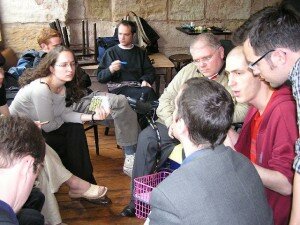 How do you communicate the value of a service event by connecting it with the bigger picture? Reflection helps you see how your service – and the service of other volunteers working with you – has benefited the community. Through reflection, you can think about your commitment, the work you did, how it affected you, the impact it made on the community, and future actions you can take to continue to change your world.
How do you communicate the value of a service event by connecting it with the bigger picture? Reflection helps you see how your service – and the service of other volunteers working with you – has benefited the community. Through reflection, you can think about your commitment, the work you did, how it affected you, the impact it made on the community, and future actions you can take to continue to change your world. Family & Women’s Services
Family & Women’s Services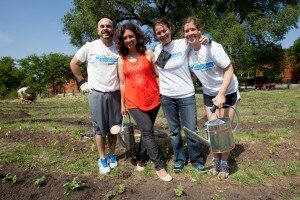 Volunteers give so much to the causes they serve. It’s no surprise that volunteers are also benefiting from their time spent in service! As you give your time and skills, you will find new people, skills, connections, and perspectives. Read on for a few rewards and opportunities that come to those who reach out in service.
Volunteers give so much to the causes they serve. It’s no surprise that volunteers are also benefiting from their time spent in service! As you give your time and skills, you will find new people, skills, connections, and perspectives. Read on for a few rewards and opportunities that come to those who reach out in service.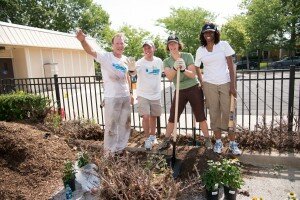 Volunteering helps you develop great friendships. It takes an extraordinary person to love a stranger enough to give your time and skills to them. Some volunteers find that the quality of people they met while volunteering is higher than anywhere else; there is something intrinsically special about people who volunteer.
Volunteering helps you develop great friendships. It takes an extraordinary person to love a stranger enough to give your time and skills to them. Some volunteers find that the quality of people they met while volunteering is higher than anywhere else; there is something intrinsically special about people who volunteer.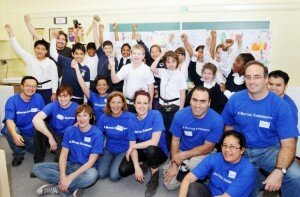 Why do you volunteer? That’s the question we all want the answer to, as it varies so much from person to person. We collect stories, read studies, and browse charts & infographics in pursuit of the common theme. We love volunteers and never tire of hearing the inspiration behind the time and effort they give to the causes and organizations they are passionate about.
Why do you volunteer? That’s the question we all want the answer to, as it varies so much from person to person. We collect stories, read studies, and browse charts & infographics in pursuit of the common theme. We love volunteers and never tire of hearing the inspiration behind the time and effort they give to the causes and organizations they are passionate about. an
an 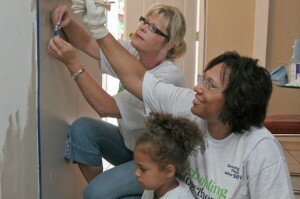 I’d like to share with you a few things I’ve learned over my term so far.
I’d like to share with you a few things I’ve learned over my term so far. service will be felt long after we have left. During “AmeriCorps Works” week, I invite you to think back and remember your own “aha!” moment. What is your purpose and direction in the service field? How do you feed the need to impact others in a positive way? Take some time to refocus on that moment and the resulting actions; it can only increase your commitment to service!
service will be felt long after we have left. During “AmeriCorps Works” week, I invite you to think back and remember your own “aha!” moment. What is your purpose and direction in the service field? How do you feed the need to impact others in a positive way? Take some time to refocus on that moment and the resulting actions; it can only increase your commitment to service!
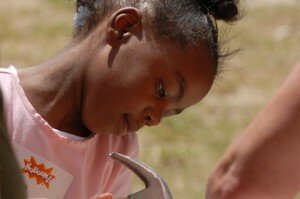
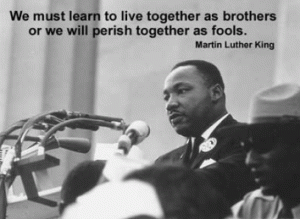
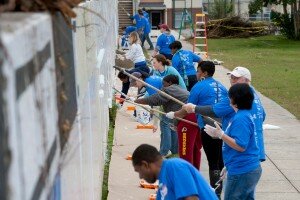
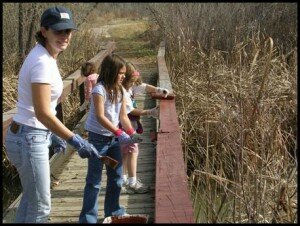 at your local park will allow you to appreciate and preserve your local park.
at your local park will allow you to appreciate and preserve your local park.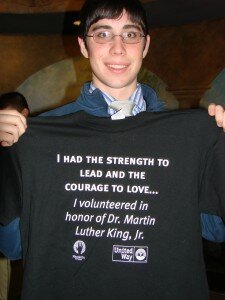

 Earlier this week on NPR there was a story about
Earlier this week on NPR there was a story about 
